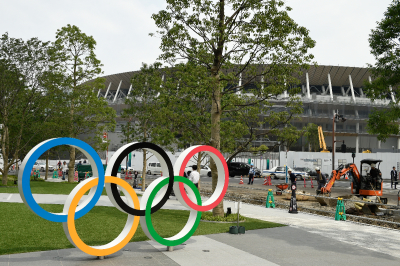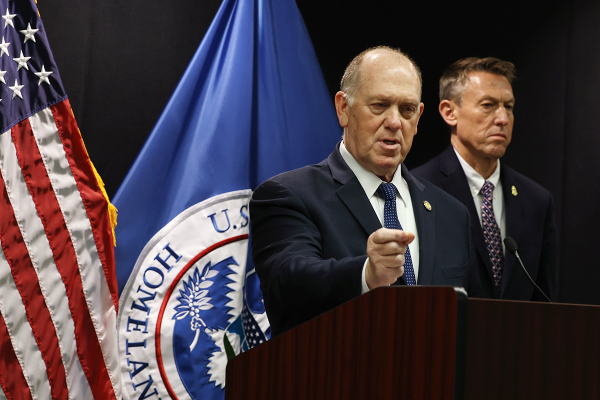Tokyo Olympics, refugee team, and the US use of 'alien'

This summer, the 2020 Olympics are being held in Tokyo, a global event built on the values of encouraging effort, developing harmony, and preserving human dignity. Among those competing is the Refugee Olympic Team, consisting of 29 refugee Olympic athletes who represent a population of 20.7 million refugees worldwide. When I met Pur Biel, a spokesperson for the Refugee Olympic team, earlier this month, he told me that he is “so honored to be part of the Refugee Olympic team again, to be an ambassador for the millions of refugees across the world.”
Pur’s village was attacked in 2005, forcing him to flee his home at only ten years old. He made it to Kakuma Camp in Kenya where he spent years living without his biological family. Eleven years later, he was part of the inaugural Refugee Olympic Team at the Rio Olympics.
Pur shared with me that he does not feel ashamed of being a refugee because it is something that can happen to anyone. Today it is him but tomorrow it could be anyone—and people across the world must come together to dispel misconceptions surrounding refugees. In fact, Pur wants to use his platform to bring hope to the millions of refugees across the world, many of whom come from different countries, cultures, and backgrounds—“aliens” to each other.
The use of harmful rhetoric about displaced people has been especially prominent over the past few years with an increased focus on the U.S.-Mexico border, but U.S. leaders have a history of debating how to respond and refer to people who are not citizens of the United States. In 1790, the first U.S. law specifying who could become a citizen limited this right to “free whites of good moral character”. The Chinese Exclusion Act of 1882 prohibited Chinese immigration to the U.S. for ten years and prevented Chinese immigrants from becoming U.S. citizens. This Act was later repealed and replaced with laws that used “alien” instead of words referring to specific populations. The word “alien” actually gained its definition in the realm of science fiction during the Space Age of the 1950s, taking a term that once meant a “foreign national” and assigning it implications of criminality and being subhuman.
A missionary I met in Germany while serving refugees from the Middle East and North Africa told me, “We are all a combination of the dust of the earth and the breath of God,” drawing on Genesis 2:7 where “God formed man of the dust of the earth and breathed into his nostrils the breath of life; and man became a living soul.” His words stayed with me as we worked to restore and affirm the dignity of the men, women, and children that were stripped away when they were forced to flee their home countries.
Yet the words the world uses to describe refugees often marginalize and dehumanize them further. It’s hard to see God’s image in another person when the names we call them give us a different picture. Building a more humane, compassionate immigration system starts by changing the words we use to describe the people who have been forced from their homes.
In April, the heads of U.S. Immigration and Customs Enforcement (ICE) and Customs and Border Protection (CBP) issued memos directing staff to replace the term “illegal alien” with “undocumented noncitizen.” Advocates are calling on the Department of Justice to follow suit. These changes are part of a larger effort to create a more humane immigration system.
As my missionary friend noted, people from another country really aren’t so foreign. Once we begin to peel back the layers of division and misunderstanding, we can see that at a very fundamental, biological level, we are not so different.
The word “alien” translated into other languages carries the definition of a tiny green being from another planet, not a fellow human from another country. Troy Miller, Acting Commissioner for U.S. Customs and Border Protection, once wrote that “we set a tone and example for our country and partners across the world…we enforce our nation’s laws while also maintaining the dignity of every individual with whom we interact. The words we use matter and will serve to further confer dignity to those in our custody.”
Congress must remove the word “alien” from the United States legal code. But we don’t need to wait for an act of Congress to start seeing one another as a combination of the dust of the earth and the breath of God.
Laura McCarter is the Refugee and Immigration Policy Advisor at Bethany Christian Services.





















